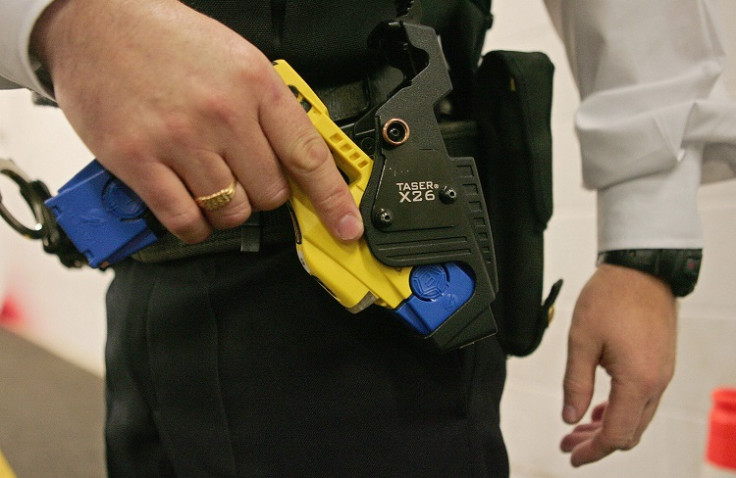Leytonstone stabbing: More London police officers to be armed with Tasers after 'Syria-related' attack

More Met Police officers could be issued with Tasers in response to the knife attack at Leytonstone underground station in east London. Muhyadin Mire is accused of slashing a man's throat at the station earlier this month before police grounded him using the stun gun.
The 29-year-old, appeared at Westminster Magistrates' Court on 7 December charged with attempting to kill a 56-year-old man on 5 December. Responding to the incident Sir Bernard Hogan-Howe said the UK's largest police force is "actively looking" at increasing the number of specially trained officers from its current level of 2,000.
Appearing at the London Assembly, Hogan-Howe said: "The Prime Minister called yesterday for serious consideration of more availability of Tasers, not only in London but around the country."
Around 40 officers from each borough in the capital have been trained in the use of Tasers with trained officers deployed in pairs in two cars, a maximum of four officers per eight-hour shift over a 24-hour period.
Tasers in London
Tasers were initially issued to officers from SCO19 (Firearms Command) as a less lethal option in 2004. Just over 2,000 officers from the Met's Firearms commands are trained and equipped to use the electroshock weapon.
As part of a national government pilot in 2007 Tasers were issued to officers from the Territorial Support Group, a specialist unit, trained to the highest level in public order and which responds to violent incidents. There are currently over 400 officers from the Territorial Support Group trained in its use.
In 2012 the Metropolitan Police Commissioner instigated a programme to provide a Taser response in every London borough. Around 40 officers from each borough have been trained in the use of Taser. The initial training is now complete.
Source: Met Police
Speaking earlier on the Today Programme, Hogan-Howe said London was less likely to see a Paris-style attack. One hundred and thirty people were killed in the atrocity last month when Islamic extremists conducted a series of attacks in the French capital.
"First, we do not have a land border with Europe, so smuggling and travelling across borders is harder," he said. "Secondly, criminals do not have easy access to firearms; it is possible [to get access to guns] but not in the way that we see for example in France. Third, the way that police and security services work here is pretty remarkable and you do not see that in the rest of the world."
© Copyright IBTimes 2024. All rights reserved.






